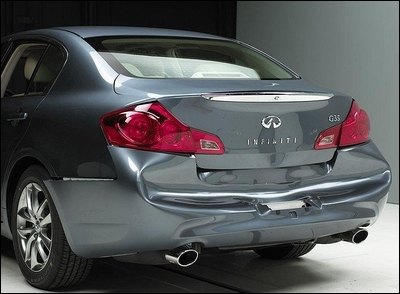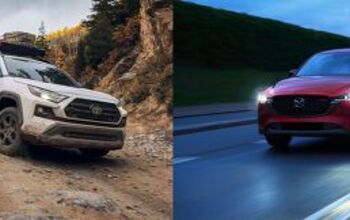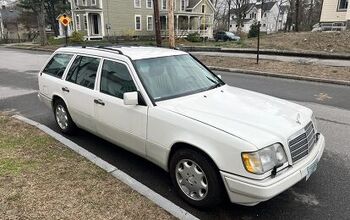IIHS Rates Malibu, Avenger, G35, Optima, Galant, Aura and Altima Safety
The Insurance Institute for Highway Safey (IIHS) released the results of their tests on seven midsize sedans today: Malibu, Avenger, G35, Optima, Galant, Aura and Altima. All but the Optima received good ratings in front and side crash tests. The Optima was rated acceptable in front and side tests while it received a good rating in rear crash testing. Four of the cars– Malibu, Aura, G35 and Altima– were considered "marginal" in rear crash tests; the Galant was rated poor and Avenger was rated adequate. The Detroit News points out IIHS test standards are more stringent than those NHTSA uses for their "star" ratings, but NHTSA says they'll have stricter standards in effect for the 2010 model year. Mitsubishi and GM were quick to say they design their vehicles to meet federal standards, displaying their usual "if 65's a pass, 66 is overkill" mentality.
More by Frank Williams


































Comments
Join the conversation
So when ever car in America reaches "Good" status, are we going to have to adjust the test or just add a new layer (eg "But these go to eleven")?
The year is 2035 and a new gaggle of vehicles is brought together to undergo the latest IIHS impact tests. The first car is brought up - and the technicians clear the area. Then one of the two guys that used to star on Mythbusters yells "Fire in the hole!!" and presses a button. At that instant a rocket propelled grenade (RPG) is fired at the target - uh vehicle. After the smoke and dust clears the technicians approach to take measurments. The verdict is - a fair rating. "I guess we won't be able to raise rates on this model" quips an insurance industry exec who has been observing the test.
210delray: "Just because a Yugo technically met the standards in 1986, would you have bought one then..." No, but if I'd known what a rare collectible they'd become, I would have bought a used one a few years later when more-or-less drivable Yugos could still be found.
The just enough to pass mentality is the reason there are so many recalls in the mill. All car companies conduct risk analysis before they release a design to the assembly plant. They look at what will fail and how much the lawsuits/recalls will cost compared to how much they will save by not correcting the potential failure. This mind set extends to problems that develope in the field, like Dex-cool, bad head gaskets, oil leaking onto the manifold, etc. They know there is a problem but continue to use the same parts until there a class action suit or the government forces them to change.